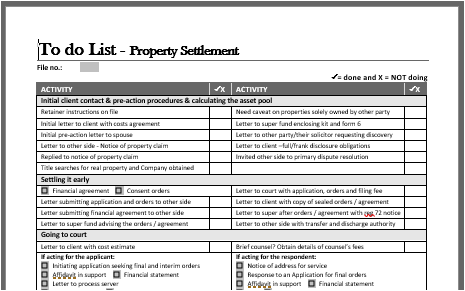The Conveyancing (Sale of Land) Regulations 2017 will come into force 1 September 2017 affecting contracts for the sale of land.
The main changes are to the disclosure obligations requiring the following to be annexed to the contract:
- both the sewer mains and the connections diagrams are now required; and
- for a strata or community plan property ALL by laws must be attached including the model by-laws.
Changes to contract warnings include:
- a new warning about loose fill asbestos; and
- the swimming pools warning has been removed.
Commentary, precedents and the By Lawyers Contract for Sale of Land have all been updated.


